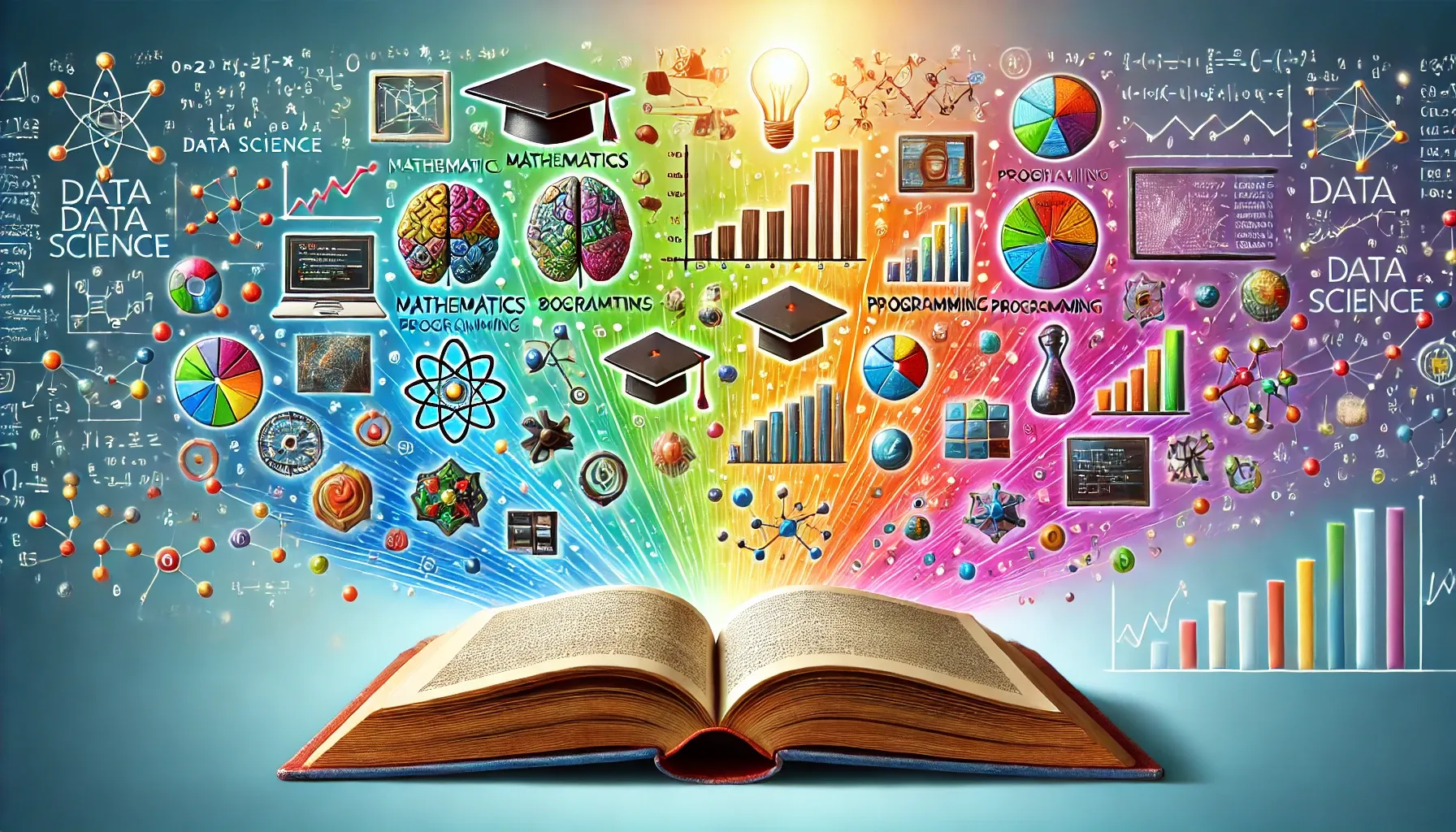Embark on an exhilarating journey into the heart of data science, a field where analytics, coding, and business insight collide to create powerful solutions and insights. Whether you're aiming to switch careers, enhance your skills, or delve into academic research, mastering data science through self-study is an empowering path. Below, find a vibrant, step-by-step roadmap filled with practical tips and resources to guide you through mastering data science on your own.
🎯 Phase 1: Setting the Stage for Success
1.1 Define Your Learning Objectives
- Purpose: Clarify your motivation behind learning data science. Is it for career advancement, personal development, or a specific project?
- Goals: Set specific, measurable, achievable, relevant, and time-bound (SMART) goals to keep your learning on track.
1.2 Plan Your Study Schedule
- Regular Learning Blocks: Dedicate consistent daily or weekly time slots to studying to build a habit.
- Flexibility: Allow some flexibility to adjust as you progress or as needed to prevent burnout.
📚 Phase 2: Building Foundational Knowledge
2.1 Master Essential Mathematics
- Key Areas: Focus on statistics, probability, linear algebra, and calculus.
- Resources: Utilize Khan Academy, Coursera, or textbooks like “The Elements of Statistical Learning.”
2.2 Learn Core Programming Skills
- Python or R: Start with Python due to its versatility and extensive library support. For statistical analysis, R is also a great choice.
- Online Courses: Explore introductory courses on platforms like Codecademy, edX, or DataCamp.
🔧 Phase 3: Developing Technical Proficiencies
3.1 Data Manipulation and Analysis
- Tools: Learn to use Pandas for data manipulation and NumPy for numerical data in Python. For R, get comfortable with dplyr and tidyr.
- Practice: Work on sample datasets to apply data cleaning, transformation, and exploration techniques.
3.2 Data Visualization Skills
- Visualization Libraries: Master Matplotlib and Seaborn in Python; ggplot2 in R.
- Projects: Start by visualizing real-world data from Kaggle or government databases to gain insights and build a portfolio.
3.3 Introduction to Machine Learning
- Algorithms: Understand and apply basic machine learning algorithms, starting with linear regression and classification techniques.
- Frameworks: Get hands-on with scikit-learn for Python. Explore caret in R for a comprehensive suite of tools.
📈 Phase 4: Advanced Data Science Topics
4.1 Deep Dive into Machine Learning
- Complex Models: Explore decision trees, random forests, and support vector machines.
- Project-Based Learning: Implement these models on complex datasets to solve real-world problems.
4.2 Exploring Big Data Technologies
- Big Data Tools: Familiarize yourself with Apache Hadoop and Apache Spark, which are essential for handling large datasets.
- Cloud Platforms: Learn about AWS, Google Cloud, or Azure for data science capabilities.
4.3 Artificial Intelligence and Neural Networks
- Deep Learning: Dive into neural networks, understanding the basics of TensorFlow or PyTorch.
- AI Projects: Apply AI to practical examples like image recognition or natural language processing.
🌍 Phase 5: Applying Your Skills
5.1 Real-World Data Science Projects
- Kaggle Competitions: Participate in competitions to challenge your skills and learn from the community.
- Personal Projects: Identify problems you are passionate about solving with data science techniques.
5.2 Building a Professional Portfolio
- Showcase Your Work: Use GitHub to document all your projects. Ensure your repository is well-organized and your code is clean.
- Portfolio Website: Create a professional website or blog to showcase your projects, resume, and contact information.
🤝 Phase 6: Engaging with the Community
6.1 Networking and Mentorship
- Data Science Forums: Engage in forums like Stack Overflow, Reddit’s r/datascience, or Cross Validated.
- Mentorship: Seek mentors through LinkedIn or industry connections to gain insights and guidance.
6.2 Continuous Learning and Skill Enhancement
- Advanced Courses: Pursue specialized courses in areas like data engineering, advanced machine learning, or business intelligence to further enhance your skills.
- Certificates: Consider obtaining certifications from recognized organizations or platforms to validate your skills and commitment.
🚀 Phase 7: Launching Your Data Science Career
7.1 Job Preparation
- Resume Crafting: Tailor your resume to highlight your data science projects and skills. Focus on quantifiable achievements and a clear demonstration of skills.
- Interview Preparation: Practice common data science interview questions and scenarios. Utilize platforms like Interview Query or Glassdoor to prepare.
7.2 Freelancing and Consulting
- Start Freelancing: Utilize platforms like Upwork or Freelancer to find data science gigs. This can help build your reputation and potentially transition into full-time roles.
- Consulting: Offer your expertise to local businesses or startups that may not have in-house data science capabilities.
7.3 Lifelong Learning
- Stay Updated: The field of data science is continuously evolving. Keep yourself updated with the latest tools, technologies, and methodologies.
- Participate in Workshops and Conferences: Attend industry conferences, workshops, and webinars to stay connected with the latest trends and network with professionals.
